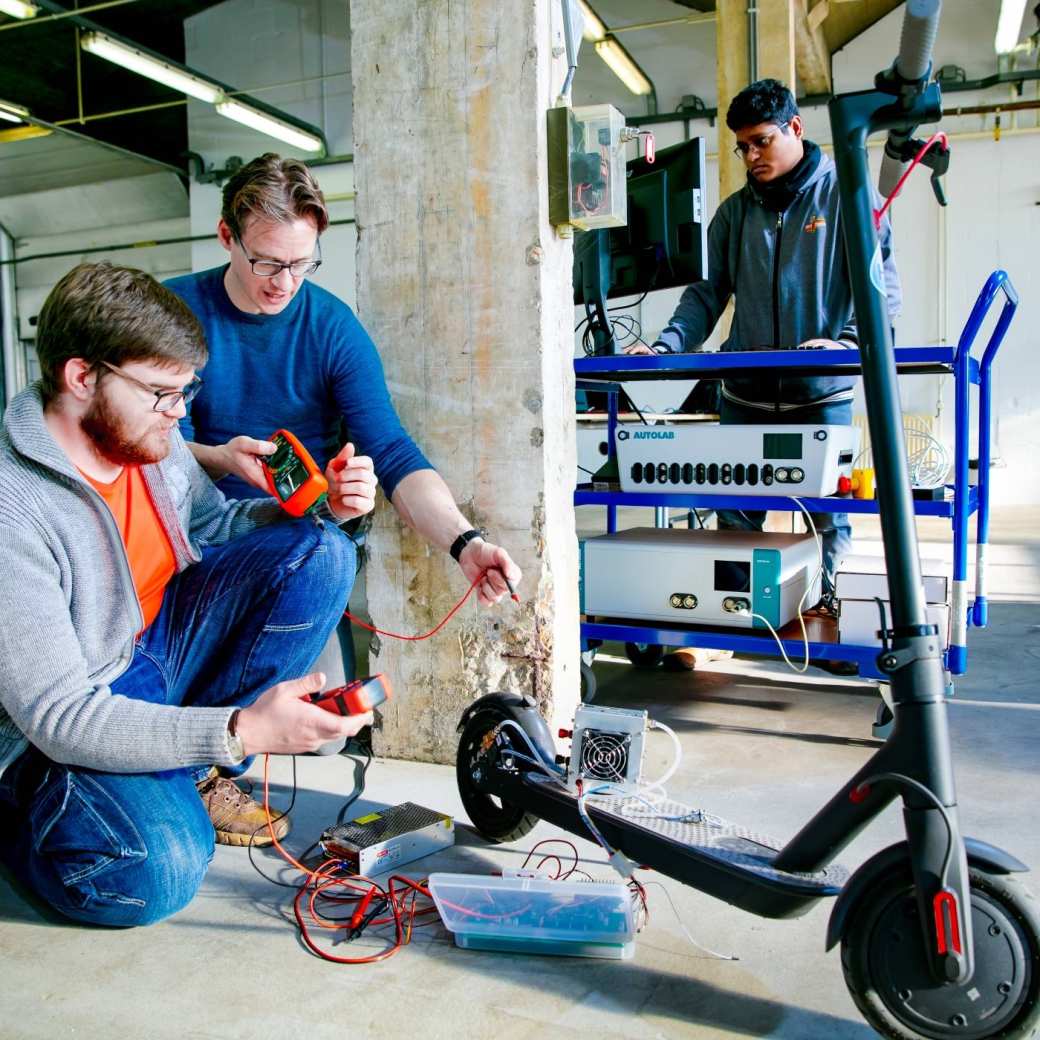Hydrogen technology certificate

The hydrogen technology certificate is all about hydrogen applications. Applications that lead to a sustainable, reliable and affordable energy supply, green mobility and a sustainable built environment.
As a HAN engineering student, you can earn this certificate within the regular curriculum of your bachelor degree. No extra subjects or study load required! It simply means making choices (in consultation) about certain parts of your program. Like your projects, internship and graduation project.
The importance of hydrogen
A major challenge in the energy transition is balancing supply and demand. That’s because renewables like wind and solar create a variable supply that doesn’t always match the demand. This issue is one of the biggest barriers to a sustainable energy system.
Hydrogen is a promising energy carrier that can contribute to solving this problem. After all, electricity can be stored by turning it into hydrogen. Besides its use as a storage medium, hydrogen is also suitable as a sustainable fuel. It’s no wonder this energy carrier is attracting lots of attention worldwide!

How can you work on hydrogen technology?
This certificate gives you the opportunity to develop expertise in hydrogen technology during your bachelor studies. There is focus and space for you to develop a particular profile within the field. You won’t become an expert, but you will gain lots of experience. Experience both from your own study program and in collaboration with students from other study programs.
Students from various study programs can earn the hydrogen technology certificate. For each program the focus is a little different.
- Mechanical Engineering: working on systems that produce, convert, use or store hydrogen such as electrolyzers, fuel cells and gas storage tanks.
- Electrical and Electronic Engineering: working with power electronics and control systems for smart energy conversions.
- Embedded Systems Engineering: working with power electronics and control systems for smart energy conversions.
- Automotive Engineering: working with hydrogen vehicles, hybrid vehicles and hydrogen infrastructure.
Hydrogen research at HAN
The following research centers at the School of Engineering and Automotive are active in the field of hydrogen technology.
-
Automotive Research has over 15 years of experience in research into mobile applications of hydrogen technology.
-
Sustainable Energy has years of experience in applied research into hydrogen technology in collaboration with industry.
-
Control Systems Engineering investigates mainly the role of hydrogen for the temporary storage of surplus solar and wind energy for the local electricity network.
HAN also has special facilities for research and education on hydrogen technology, including the HAN H2Lab at Industry Park Kleefse Waard (IPKW) in Arnhem.

Who issues the certificate?
The hydrogen technology certificate is issued by the Dutch Hydrogen & Fuel Cell Association (NWBA - in Dutch) and the Sustainable Electrical Energy Center of Expertise (SEECE - in Dutch).
SEECE is a public-private collaboration between companies, institutions and HAN. SEECE focuses on innovation and sufficient well-trained professionals in the interest of the energy transition.

Hydrogen is clean and renewable. So an ideal raw material for the energy transition. A study program that teaches you to design, create and maintain the technology that goes with it is very valuable to yourself, the organizations you can work with, and society. And it's also just a really fun field, with great people and great projects.
How do you earn the certificate?
To earn the certificate, you have to:
- Earn at least 55 credits for projects and research problems in the context of hydrogen technology (as of the 2019-2020 academic year), including at least one multidisciplinary project.
- Demonstrate basic knowledge of hydrogen technology and working safely with hydrogen (workshop combined with self-study).
- Participate in at least 3 networking activities in the field of hydrogen technology. During one of these, you actively share the knowledge gained in one or more projects.
Of course, you don’t have to do this all on your own. HAN offers support for students working on the Hydrogen Technology Certificate and you can participate in the hydrogen learning community with other professionals who are also involved in this area.
Want more info about the Hydrogen Technology Certificate and how to participate in this thematic learning route? Go to HAN Insite > Your program > 2nd Year. You need a HAN account for this.
